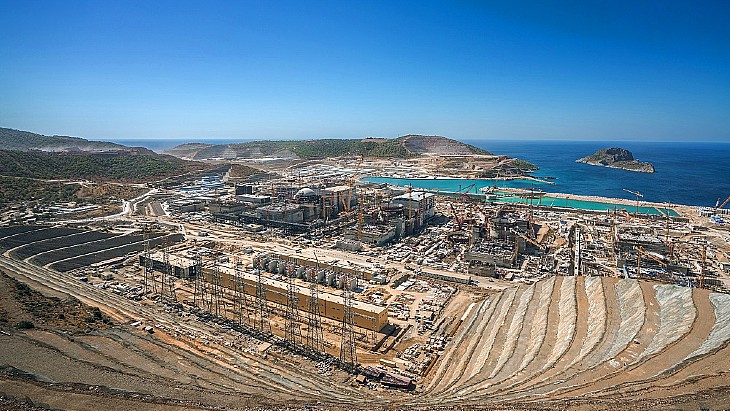Safety culture questions after loss of power at Kori 1
_77x48.jpg) The manager of the Kori 1 nuclear power reactor in South Korea has been sacked for covering up a safety-related incident at the plant last month. The plant owner now faces prosecution by safety regulators.
The manager of the Kori 1 nuclear power reactor in South Korea has been sacked for covering up a safety-related incident at the plant last month. The plant owner now faces prosecution by safety regulators.
_615x160.jpg)
The manager of the Kori 1 nuclear power reactor in South Korea has been sacked for covering up a safety-related incident at the plant last month. The plant owner now faces prosecution by safety regulators.
A report yesterday by the Nuclear Safety and Security Commission (NSSC) said the incident came about during Kori 1's month-long maintenance outage in February.
Placed in a cold shutdown state, the reactor had been receiving power from one of its three grid connections while the other two were undergoing maintenance. One of the two diesel generators was also under maintenance while the other was on standby and a third was available for manual start.
The incident began when a worker made a mistake that led to the disconnection of grid power supply and then the standby diesel failed to start automatically. This resulted in a period when the reactor had no power for safety-related functions including cooling of the core and used fuel pond.
.jpg) |
| Kori |
Plant staff acted quickly and reconnected to the grid within 12 minutes, although starting the manual diesel generator had been another option open to them. The power outage saw core coolant temperature rise from 36.9ºC to 58.3ºC, while the used fuel pond warmed by 0.5ºC to 21.5ºC. Conditions quickly returned to normal once power was restored and none of the other three reactors at the power plant were affected.
The NSSC said that there had been no impact on the safety of the nuclear fuel at Kori 1 and no release of radioactivity. However, the regulator was highly critical of certain aspects of safety culture and performance at the reactor.
Safety culture
The first safety culture issue was the failure of the maintenance worker to follow procedures or the direction of his managers while testing part of the diesel generator system. It was a subsequent mistake by him that caused the initial loss of grid connection. The automatic start-up of the diesel had been prevented by a problem with its air supply valve.
The major safety culture issue then came with a decision by the manager of Kori 1 not to report the loss of power and instead to actually delete records of the incident, despite this being classified as an emergency that must be reported to regulators no matter how quickly the situation is remedied. Yonhap News reported that the manager has been dismissed after admitting to this, and plant owner Korea Hydro and Nuclear Power (KHNP) is facing prosecution for violation of its legal responsibility to report a loss of power.
The incident itself was of low consequence thanks to the redundancy of power supplies and the overall good training and prompt action by staff; what troubles the NSSC is the apparent safety culture issues it may have brought to light. The NSSC's report said a factor in the manager's decision not to report was pressure to have a perfectly clean operational record because the reactor had recently been given a licence extension - the first time this had happened in South Korea.
Kori 1 is a 567 MWe pressurized water reactor that came into service in April 1978 and is licensed to operate until 2017.
Researched and written
by World Nuclear News


_58601.jpg)
_11531.jpg)









